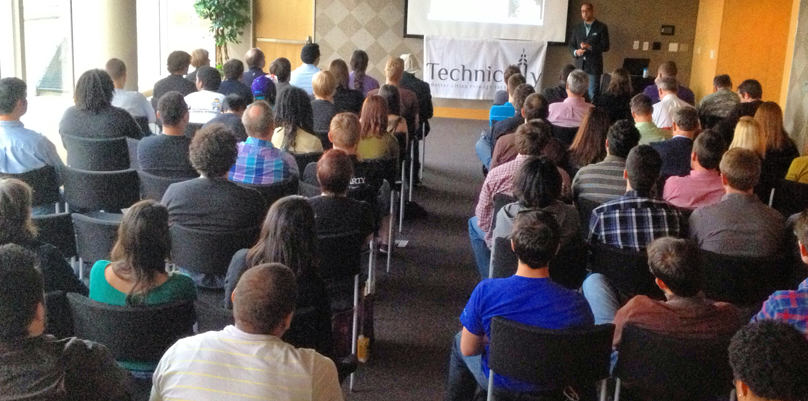Despite all the bluster, the mobile industry is still in a nascent transformation and separation from browser and console-based design.
A dozen speakers giving four-minute quick pitches at the Trends in Mobile Baltimore Innovation Week event last Wednesday at the University of Baltimore made that abundantly clear. Even Sid Meier, the legendary video game developer made famous for Civilization and now leading Firaxis, has had some lessons along the way transitioning from AAA console gaming to its mobile cousin.
At the event, he shared a handful of his clearest lessons in his 15-minute keynote address, which you can watch below.
http://www.youtube.com/watch?v=Z-ft8f1jSAM&feature=youtu.be
Sid Meier’s lessons on going mobile:
- Horsepower — the speed of mobile gaming is advancing so quickly that the industry shouldn’t be “designing down.”
- Premium versus Freemium — Established gaming companies are very comfortable selling a physical game for a good profit. Scaling usage with free downloads is a still un-established model for Firaxis.
- Attention Span versus Play Rhythm — If game speed shouldn’t be changed for mobile, then the habits of a user most certainly should. Mobile gaming is, of course, meant to be done on the move and the time necessary to accomplish a game’s objective needs to reflect that.
- Price/Value Expectations — Mobile is in a place for experimentation, where getting a game out cheaply and quickly has a higher priority than lengthy turnaround times. However, some established firms do have different expectations from their users.
- Monetization and Design — How valuable and engaging a game is becomes its revenue model for in-game upgrades, as opposed to marketing to get an initial purchase.
- Reviews and Ratings — With a more democratic video game environment, reputation trumps all. The virality of mobile gaming far outpaces that of even the most cult-ish console games of the past.
- Phone versus Tablet — If the browser is seen as different than mobile generally then development companies must distinguish priorities and design for phone and tablet users, which present different experiences.
- iOS, Android and Windows — In early mobile development at Firaxis, Meier focused on iOS “because I have an iPad,” he said, but he quickly got a lot of feedback from Android users. The fractured mobile market comes with wider expectations.







